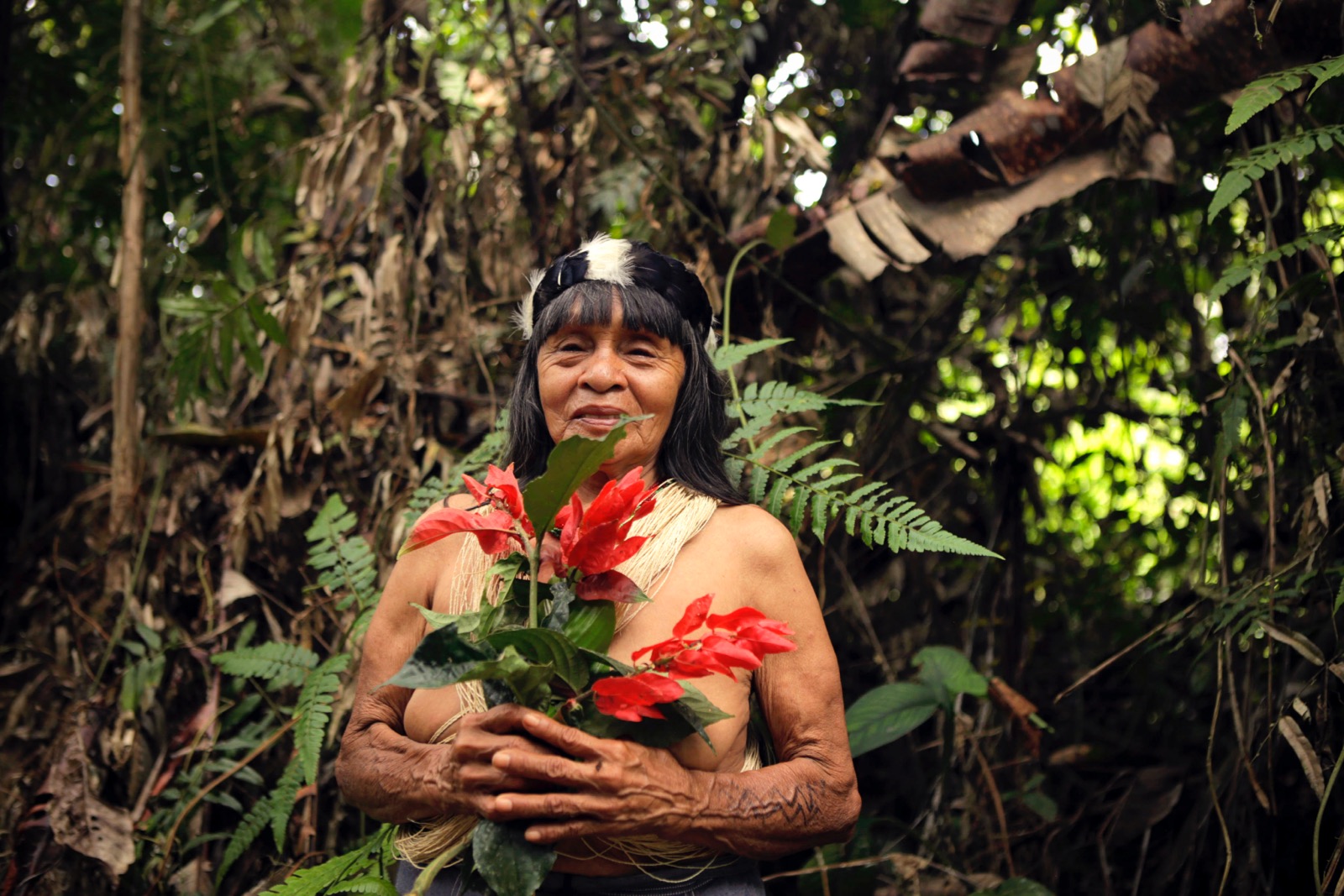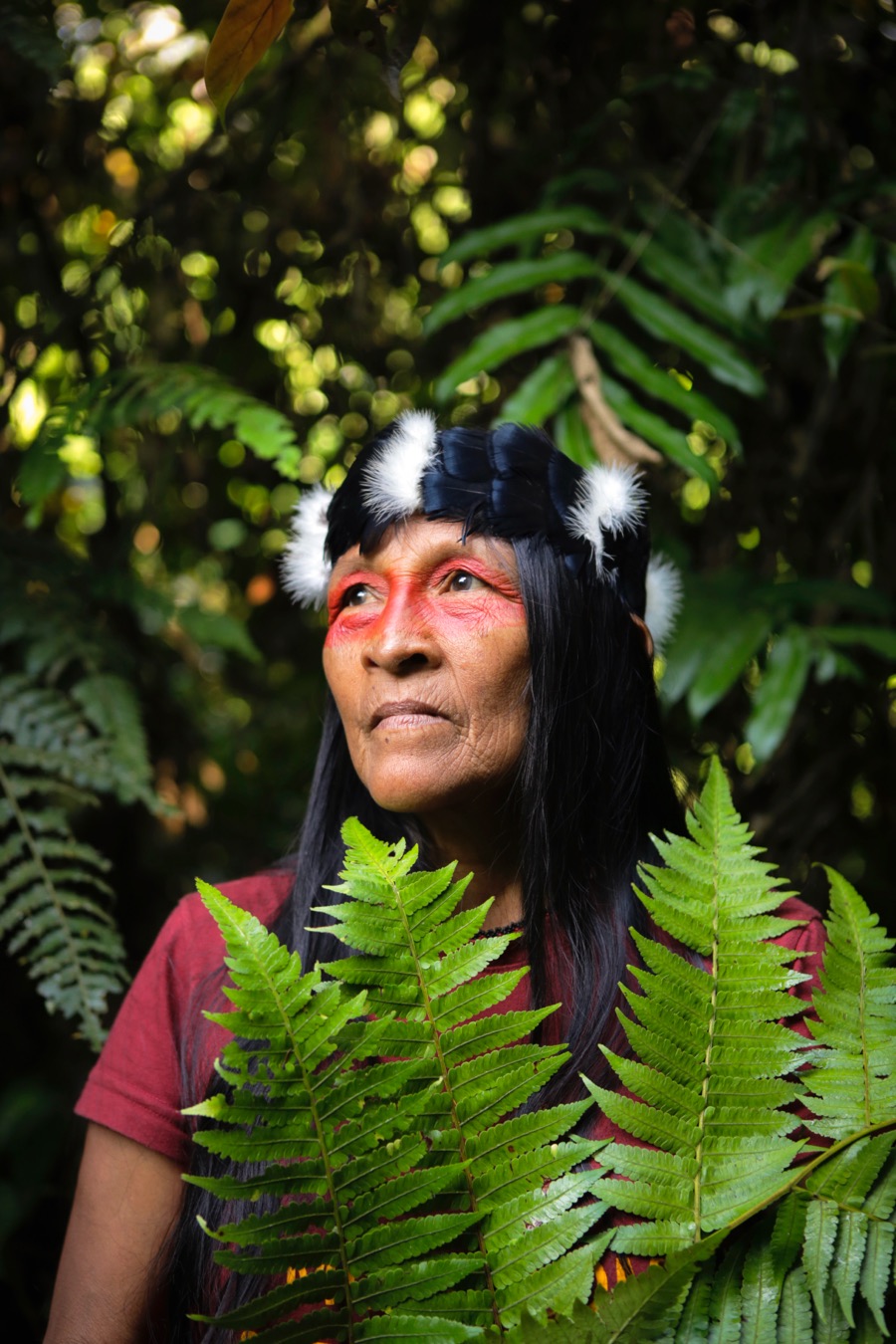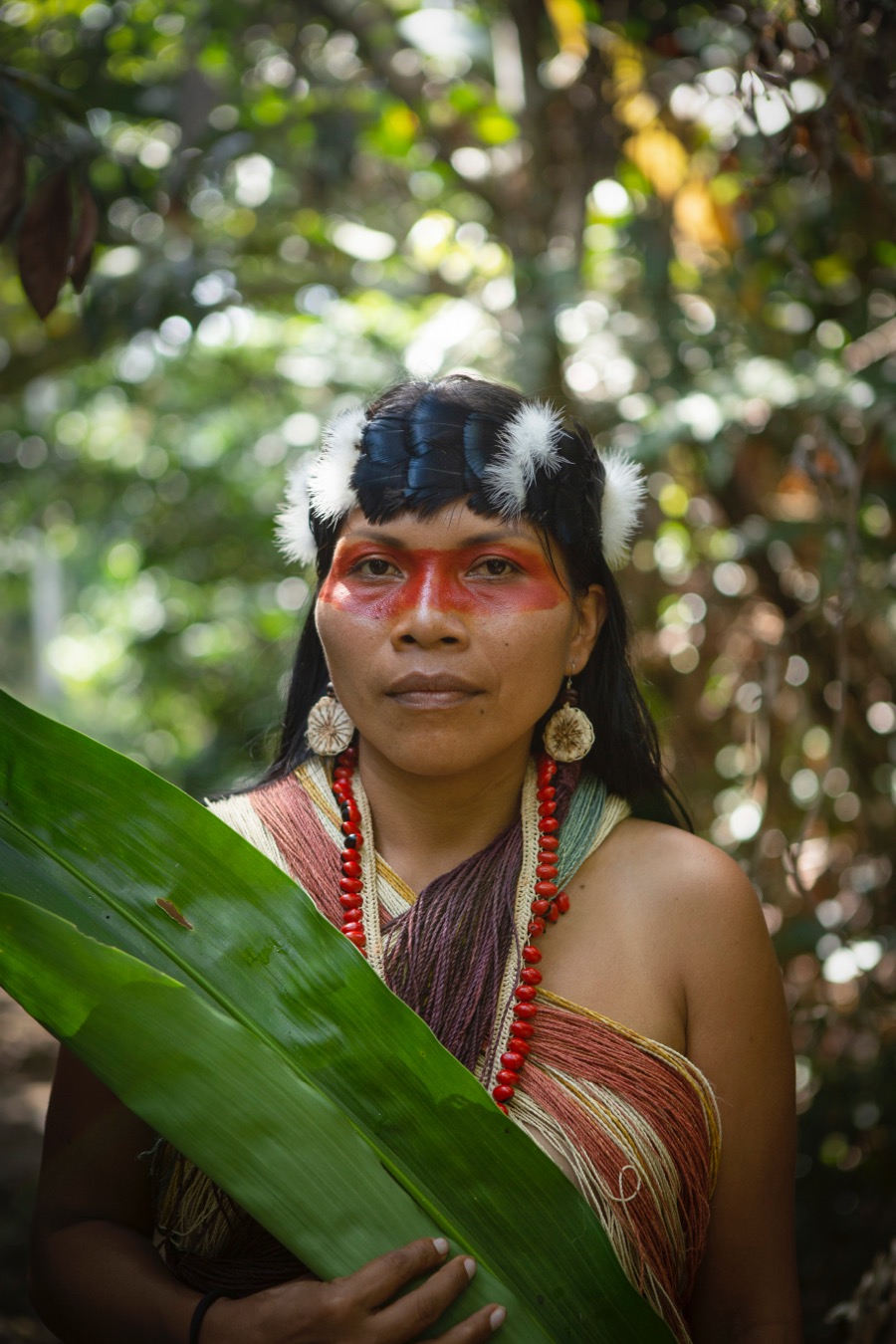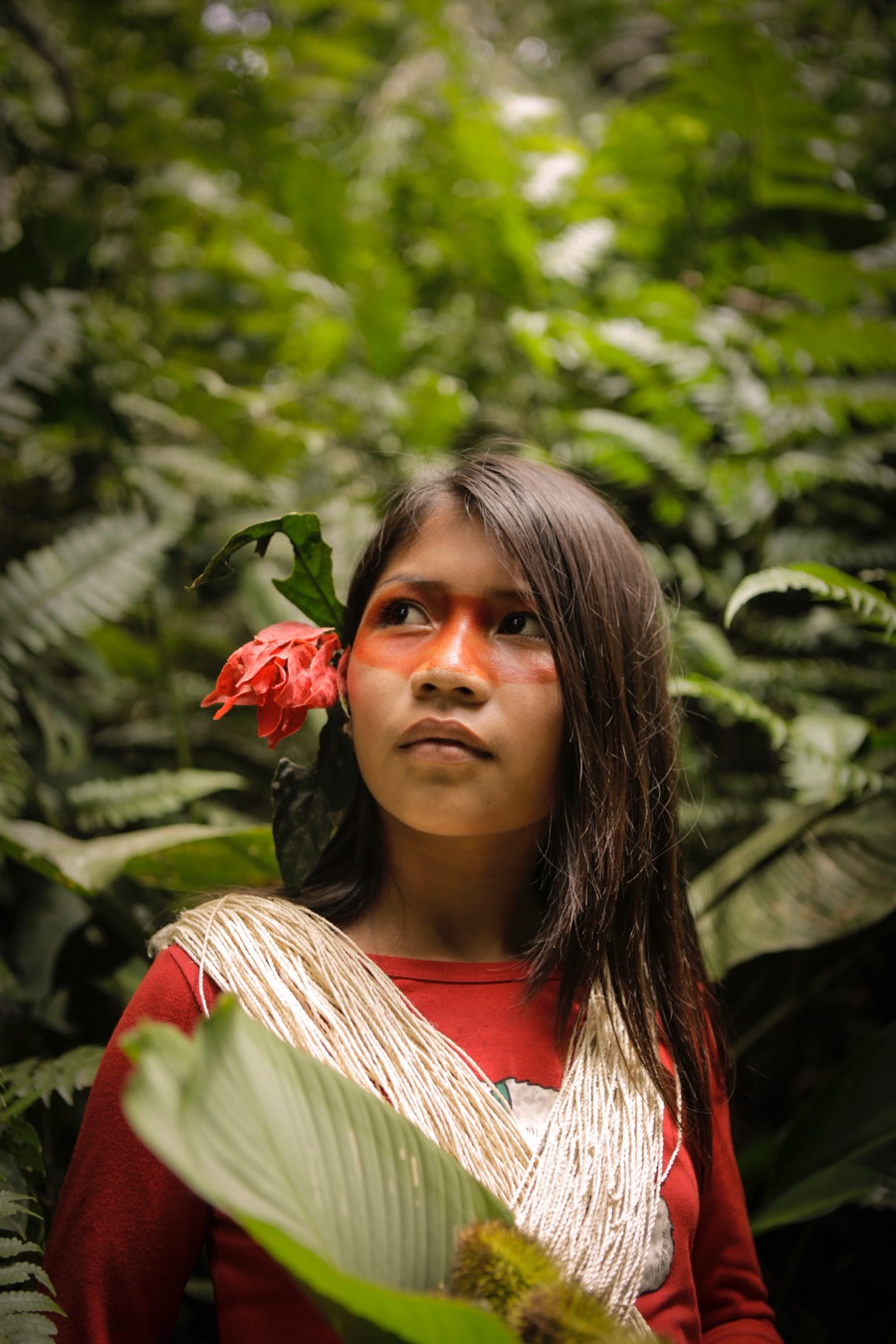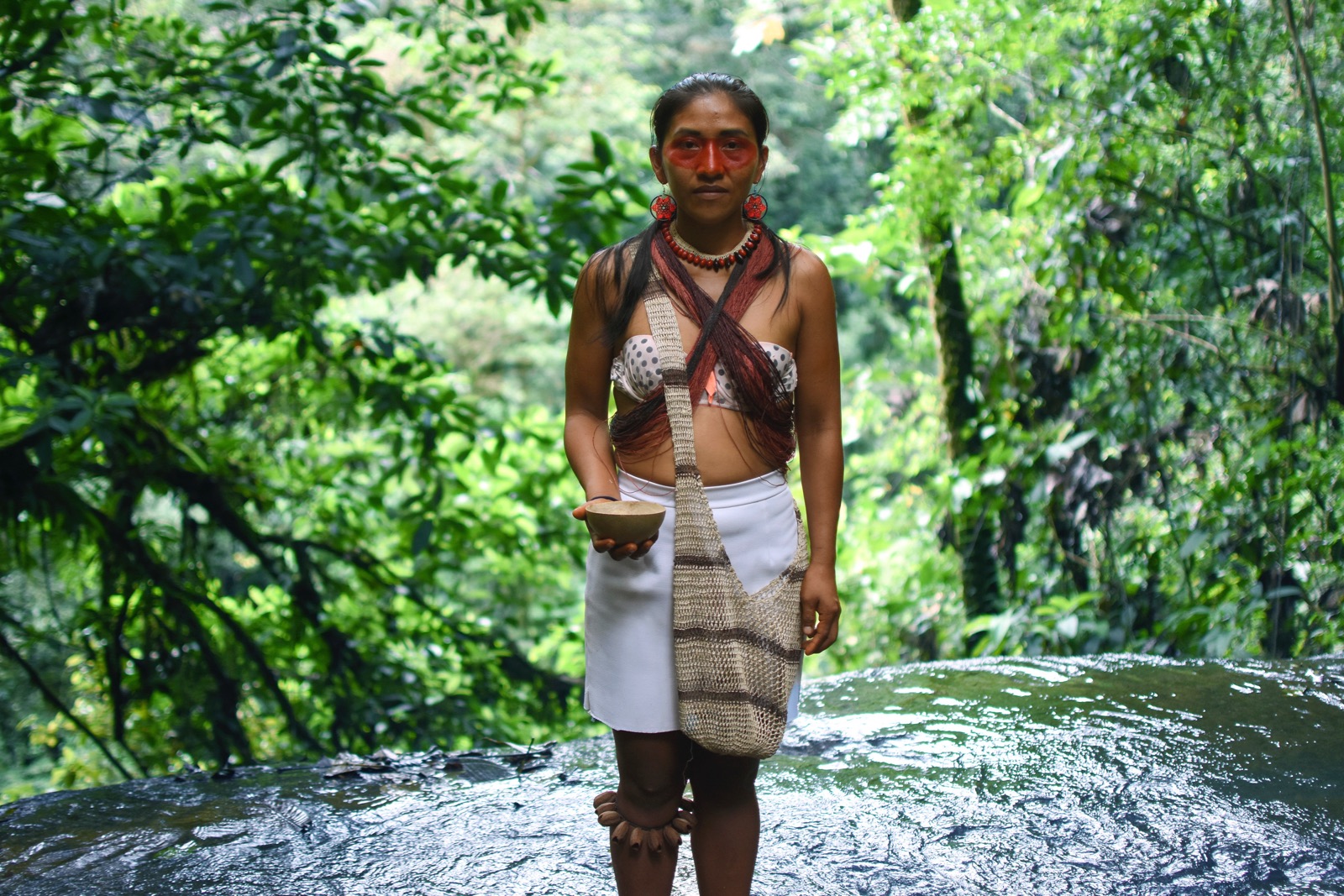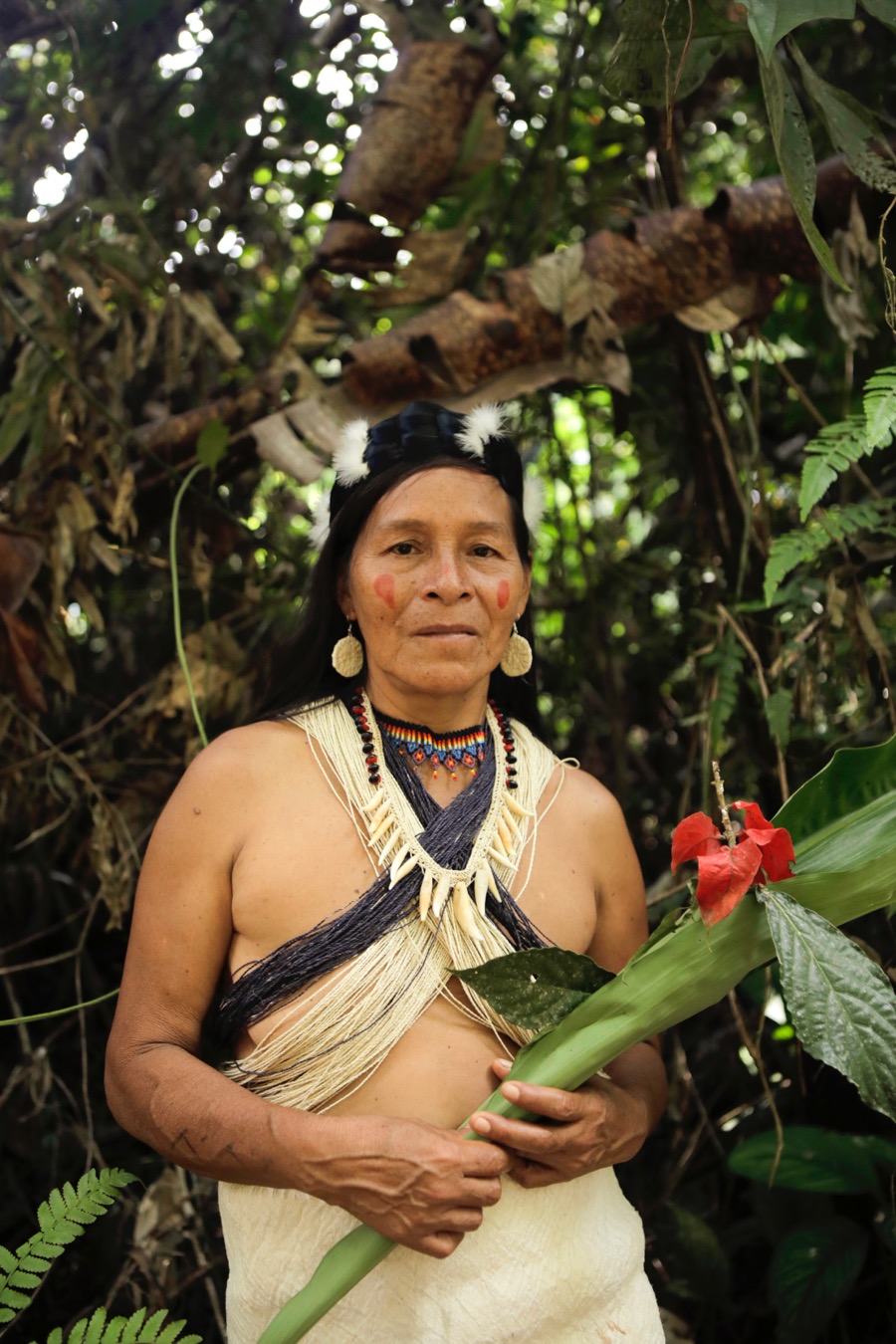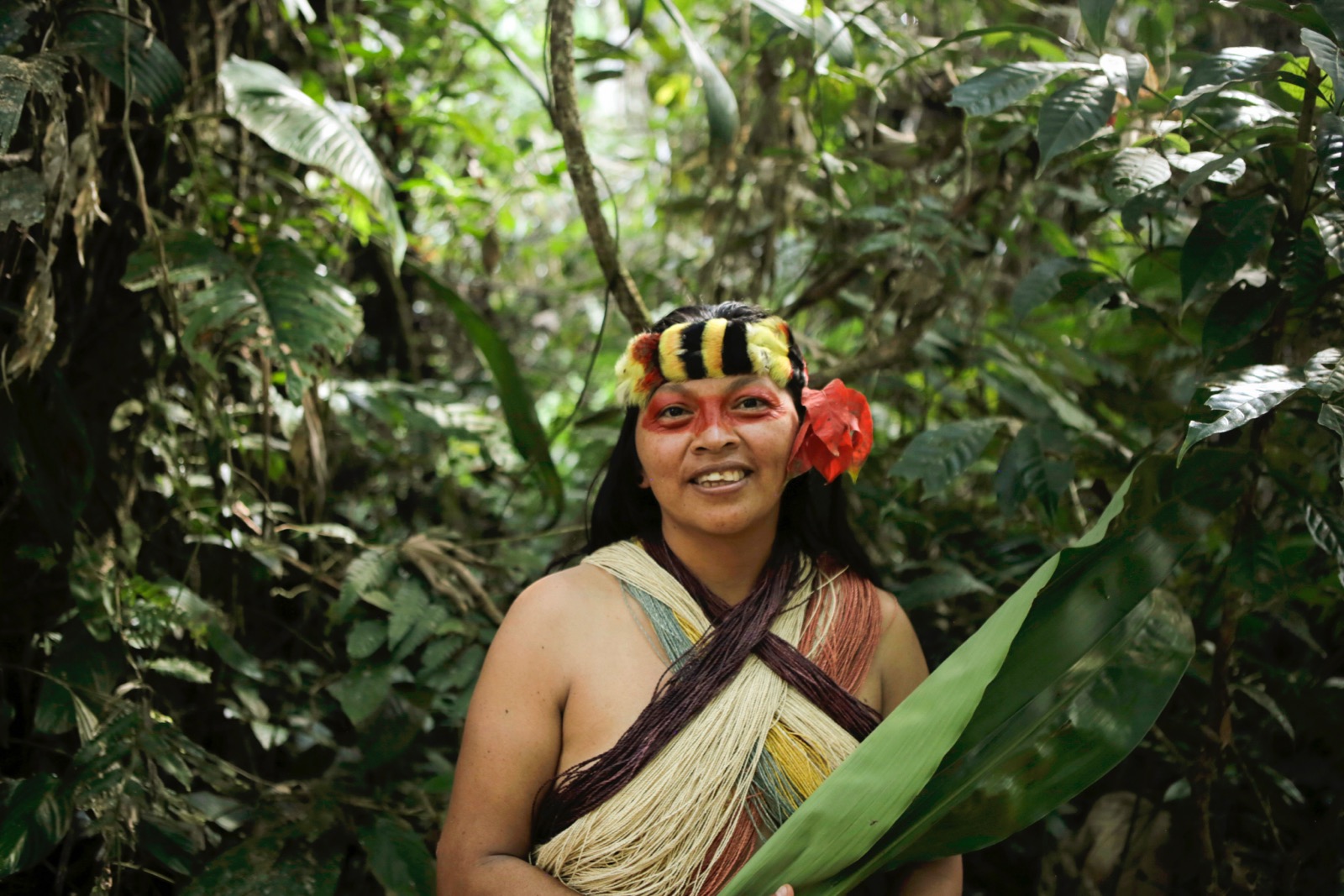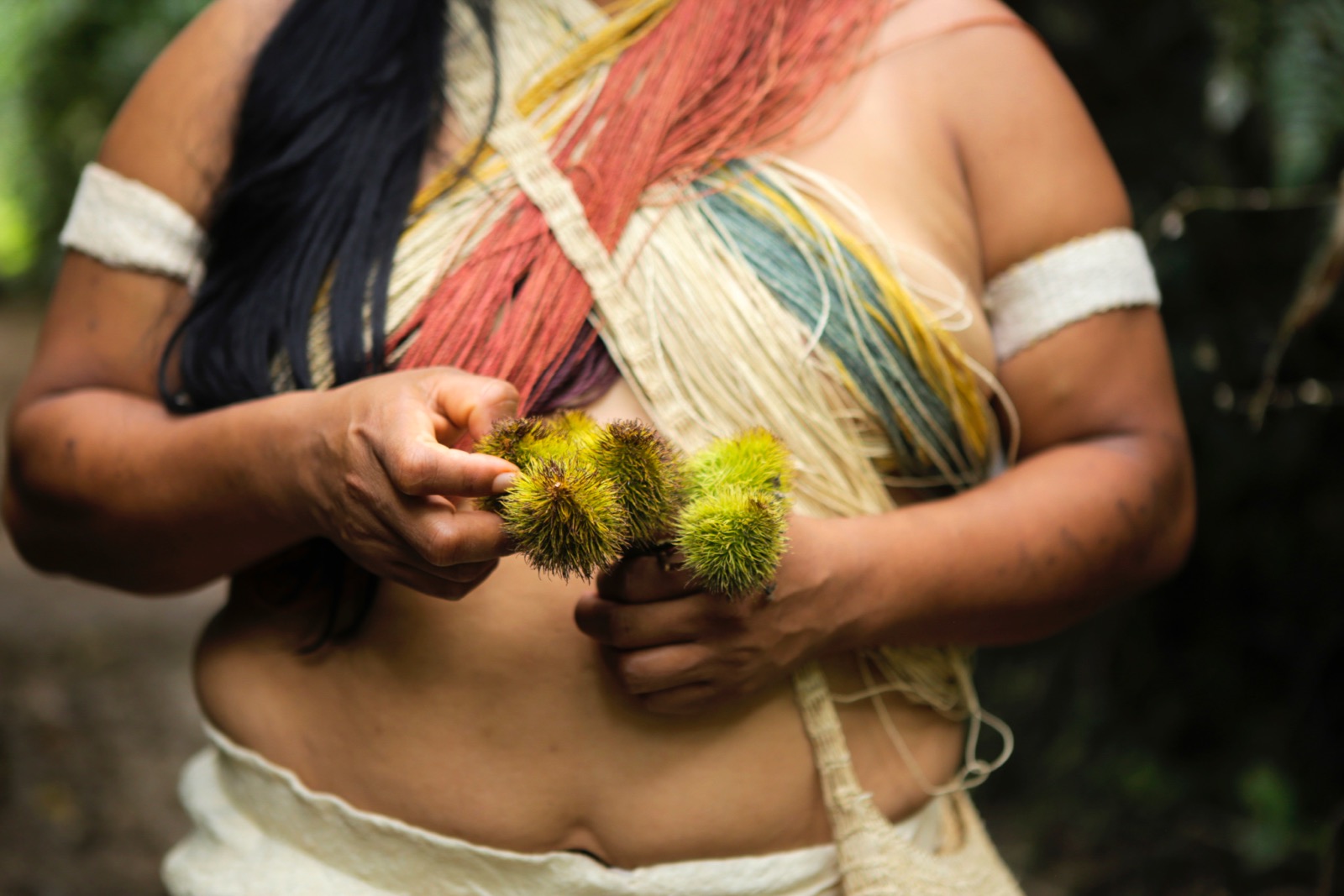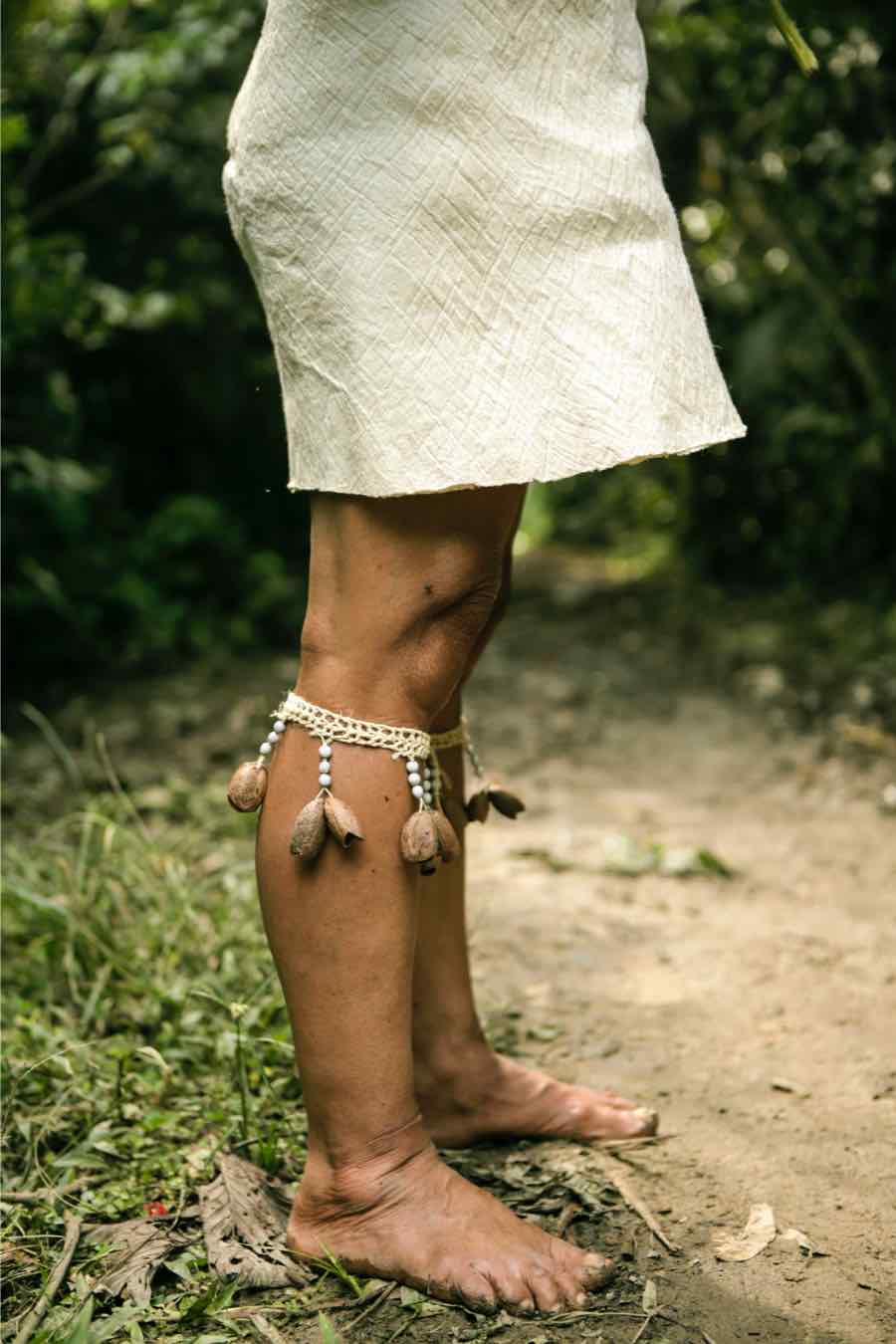Just like the spirit of the jaguar that they invoke through their songs, Waorani women exude power. In the face of colonial violence, evangelization, and extractive threats, Waorani women have maintained their people’s ancestral knowledge alive against all the odds.
As the guardians of their territory and culture deep in the heart of the Amazon rainforest, Waorani women are the backbone of their people’s resistance against one of the mightiest industries on earth and one of the biggest drivers of climate change – the fossil fuel industry. But in their hands, an abundance of climate solutions are found and cultivated. These women, like many women across the Amazon rainforest, are fundamental actors in their people’s organizing processes, employing a myriad of strategies to counter threats to their territories, from strategic litigation, education, storytelling, monitoring, and entrepreneurship.
Nearly five years have passed since the women and youth pictured in the following photo essay sang songs about the forest to judges inside a local courtroom in their people’s landmark case against the Ecuadorian government – and soon after, sent shockwaves around the world with their historic victory against the fossil fuel industry, setting an invaluable precedent for Indigenous rights and Amazon protection. Fast forward to 2023 and the Ecuadorian government has still not done good on its word to comply with the court ruling, and its plans to expand oil and mining in the Amazon have done all the contrary of dying down. Today, these Waorani women are more than ever determined to protect their rainforest homeland. We are honored to share their reflections and wisdom with you.
Wina Omaca, Waorani Pekinani (traditional leader)
“Women have always been at the forefront of our resistance. Before the European conquest and the first contact with Western civilization, it was the Waorani women who made the decisions and they worked to maintain peace and harmony in our home. It is important for women and men to listen to each other and work together, so that they can be one united force, taking action for the well-being of the forest and future generations.”
Wina Omaca, Waorani Pekinani (traditional leader)
“Women have always been at the forefront of our resistance. Before the European conquest and the first contact with Western civilization, it was the Waorani women who made the decisions and they worked to maintain peace and harmony in our home. It is important for women and men to listen to each other and work together, so that they can be one united force, taking action for the well-being of the forest and future generations.”
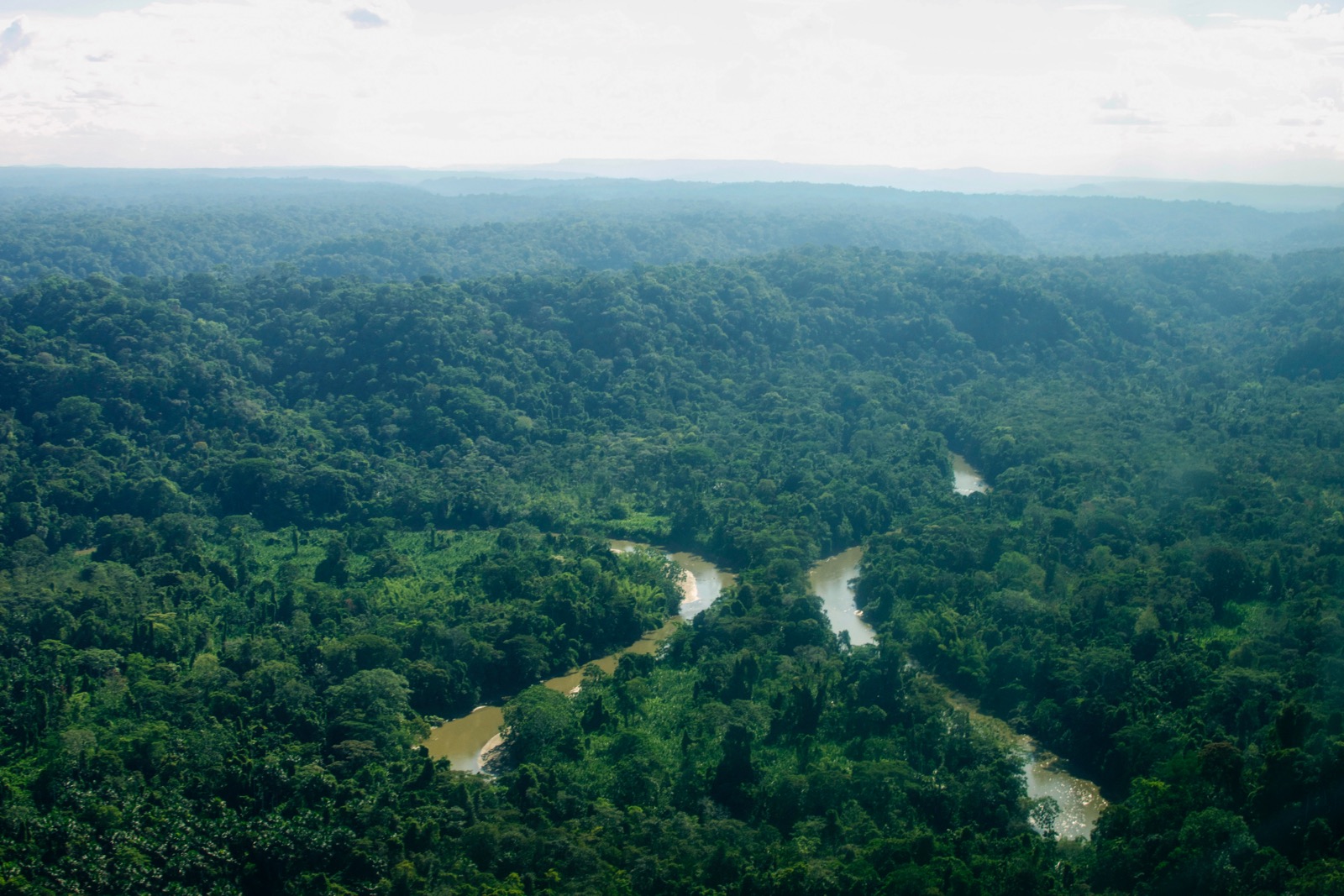
Omanca Enqueri Nihua, Waorani Pekinani (traditional leader)
“We, Waorani women, sing many songs, and among them is a song about the jaguar. The jaguar knows no fear. Our spirit is like the jaguar because we are part of this forest. This gives us the strength to defend our territory. We will not let ourselves be intimidated by the government or companies. If they want to kill us, then let them come. We will always be here defending our home. Jaguars are ready for the attack when you try to invade their home.”
Omanca Enqueri Nihua, Waorani Pekinani (traditional leader)
“We, Waorani women, sing many songs, and among them is a song about the jaguar. The jaguar knows no fear. Our spirit is like the jaguar because we are part of this forest. This gives us the strength to defend our territory. We will not let ourselves be intimidated by the government or companies. If they want to kill us, then let them come. We will always be here defending our home. Jaguars are ready for the attack when you try to invade their home.”
Nemonte Nenquimo, Waorani leader & Goldman Prize Winner
“All women must continue to unite to protect the future of our planet. We need to join strengths and unite in this cause, with our hearts and soul. As Indigenous women, we face violence and discrimination because of the advance of colonization and the entry of extractive industries into our forests. Despite the threats and difficulties, we, Indigenous women, are putting our bodies on the line to protect our home, our roots, and nature. We are so strong because we are the most connected to Mother Earth. Every day, we fight for the well-being of future generations and our shared planet.”
Nemonte Nenquimo, Waorani leader & Goldman Prize Winner
“All women must continue to unite to protect the future of our planet. We need to join strengths and unite in this cause, with our hearts and soul. As Indigenous women, we face violence and discrimination because of the advance of colonization and the entry of extractive industries into our forests. Despite the threats and difficulties, we, Indigenous women, are putting our bodies on the line to protect our home, our roots, and nature. We are so strong because we are the most connected to Mother Earth. Every day, we fight for the well-being of future generations and our shared planet.”
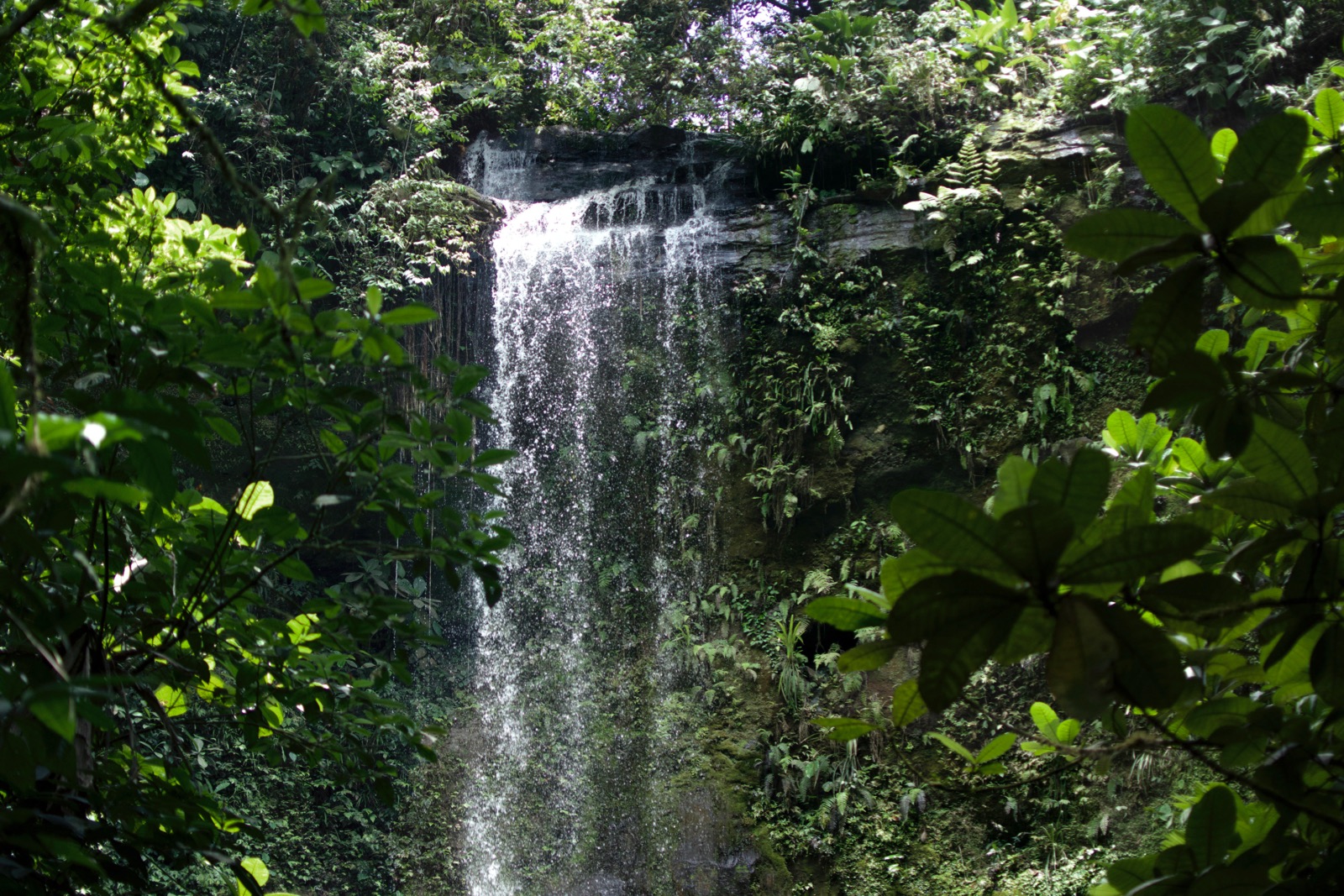
Jenny Pauchitona, Waorani youth
“My territory is important because it is my home. It is also the home of my fish, my trees, my animals, and my everything. I will defend my home so that I can have a good future. I don’t want the oil companies to come here.”
Jenny Pauchitona, Waorani youth
“My territory is important because it is my home. It is also the home of my fish, my trees, my animals, and my everything. I will defend my home so that I can have a good future. I don’t want the oil companies to come here.”
Silvana Nihua, President of the Waorani political organization of Pastaza, OWAP
“We are from the forest, we are warrior women. We are wise because we still maintain our ancestral knowledge. Our territory gives us life. Extractive industries want to destroy everything we have. I have seen how other Indigenous nations have suffered from the impacts of extractive industries and that is why I will never allow the oil companies into our home.”
Silvana Nihua, President of the Waorani political organization of Pastaza, OWAP
“We are from the forest, we are warrior women. We are wise because we still maintain our ancestral knowledge. Our territory gives us life. Extractive industries want to destroy everything we have. I have seen how other Indigenous nations have suffered from the impacts of extractive industries and that is why I will never allow the oil companies into our home.”
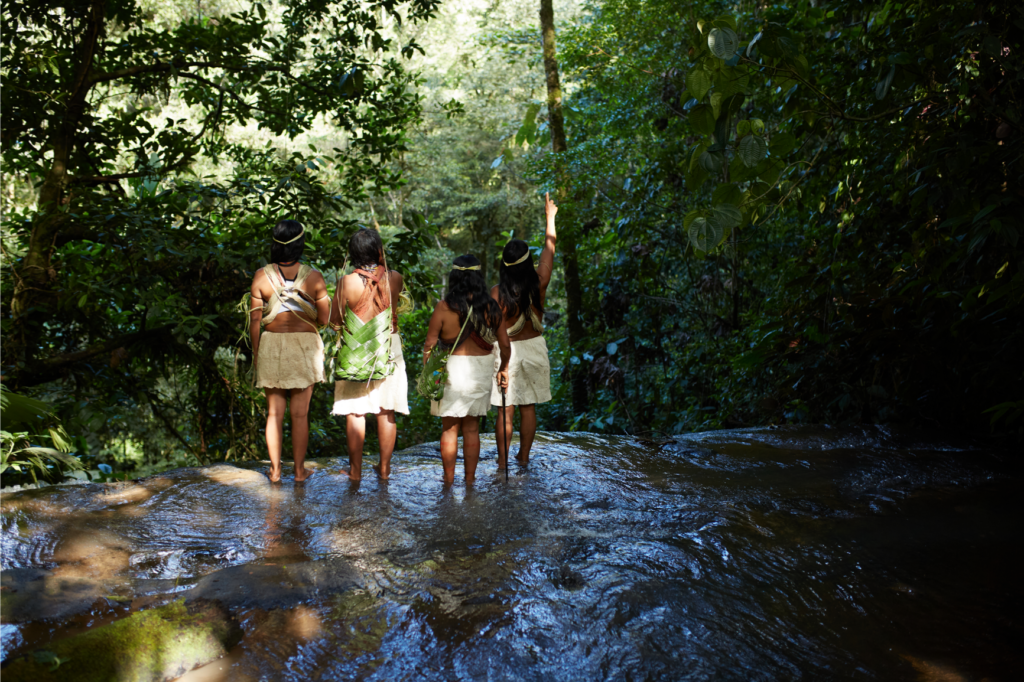
Obe Paa, Waorani community leader
“My ancestors fought to defend our territory and I am walking on the same path as my ancestors, carrying on this great legacy. The role of women goes beyond our duties at home – we share our wisdom with our communities and youth. We are defenders and we think about the well-being of future generations”.
Obe Paa, Waorani community leader
“My ancestors fought to defend our territory and I am walking on the same path as my ancestors, carrying on this great legacy. The role of women goes beyond our duties at home – we share our wisdom with our communities and youth. We are defenders and we think about the well-being of future generations”.
Ene Nenquimo, Vice-President of the umbrella organization of the Waorani Nation of Ecuador (NAWE)
“The knowledge of our Pekinani, our elders, teaches us about an absolute connection to nature. We need to ensure that it continues to be passed down to younger generations. This connection gives us strength and preserves our roots to our territory. It’s like our umbilical cord flowing into the earth. It gives us the courage to continue our resistance against all the odds”.
Ene Nenquimo, Vice-President of the umbrella organization of the Waorani Nation of Ecuador (NAWE)
“The knowledge of our Pekinani, our elders, teaches us about an absolute connection to nature. We need to ensure that it continues to be passed down to younger generations. This connection gives us strength and preserves our roots to our territory. It’s like our umbilical cord flowing into the earth. It gives us the courage to continue our resistance against all the odds”.
This photographic series includes guest photography by Indigenous leader Nina Gualinga from the Kichwa people of Sarayaku in Ecuador & Sophie Pinchetti from Amazon Frontlines. The series was created in collaboration with the Waorani women of OWAP (Waorani political organization of Pastaza) and Ceibo Alliance.
